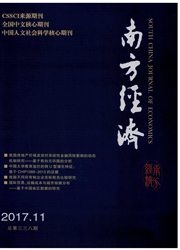

 中文摘要:
中文摘要:
商业银行以同业业务为主的非存款负债以及影子银行体系的发展大大弱化了货币乘数论的有效性,货币供给内生性增强。本文从理论及实证两个方面研究货币乘数论与银行信贷传导机制的有效性。对于央行能否影响商业银行贷款规模这一点,无论是理论分析还是实证检验的论据都不充分。实证研究表明:由于同业负债、理财业务以及出售持有债券获得流动性支持等外部融资渠道的存在,商业银行贷款并不一定受到存款约束,导致传统的货币乘数论失效。在法定准备金率这一数量型货币政策工具有效性降低的前提下,我国货币政策对于宏观经济的影响具有更大的不确定性,央行只有对商业银行等主体的放贷行为和货币创造能力实施有效控制,货币政策才能达到预期效果。
 英文摘要:
英文摘要:
The development of commercial banks' interbank business and shadow banking system has greatly weakened the effectiveness of the money multiplier theory. The endogeneity of money supply was enhanced. The effectiveness of monetary multiplier theory was studied theoretically and empirically. Neither theoretical nor empirical analysis proves that the central bank can influence the size of loans. Empirical research shows that: commercial banks' loans are not necessarily bound by the deposit, since commercial banks can obtain external financing sources through interbank liabilities, issuing WMPs and the sale of bonds, which results in the failure of traditional money multiplier. There is greater macroeconomic uncertainty because of less effectiveness of required reserve ratio monetary policy tool. In order to achieve the desired monetary results, it's necessary for the China's central bank to control the commercial banks' lending behavior and money creation mechanism.
 同期刊论文项目
同期刊论文项目
 同项目期刊论文
同项目期刊论文
 期刊信息
期刊信息
